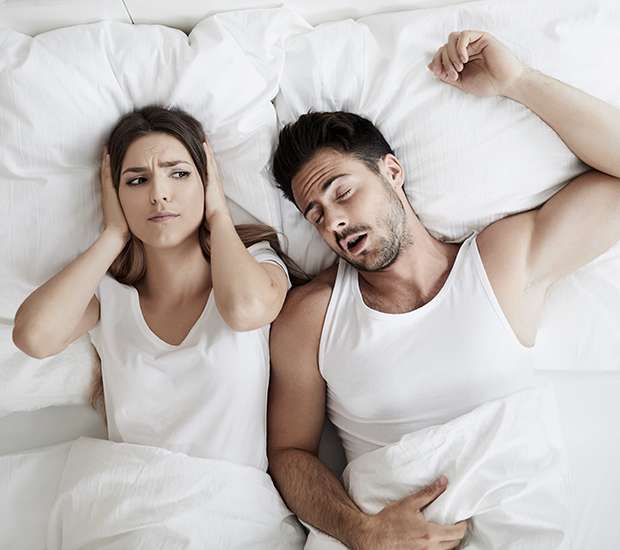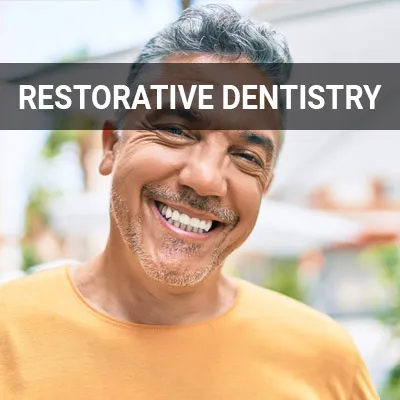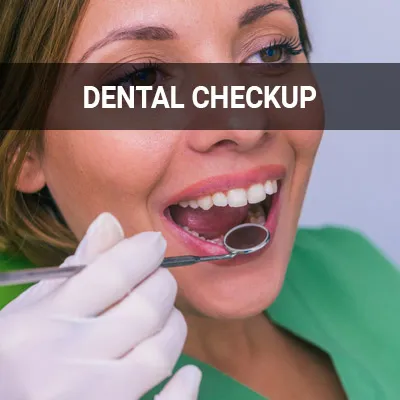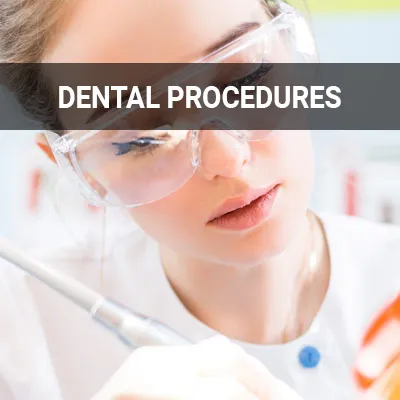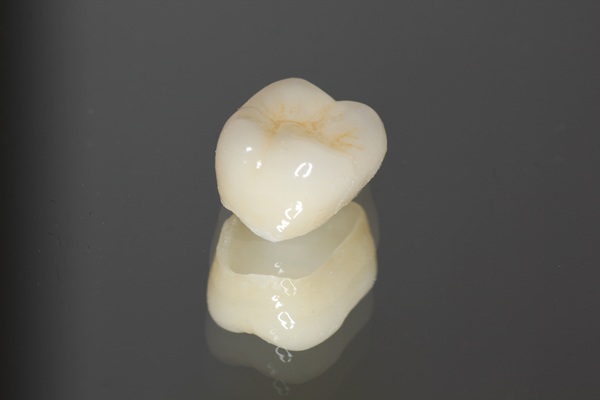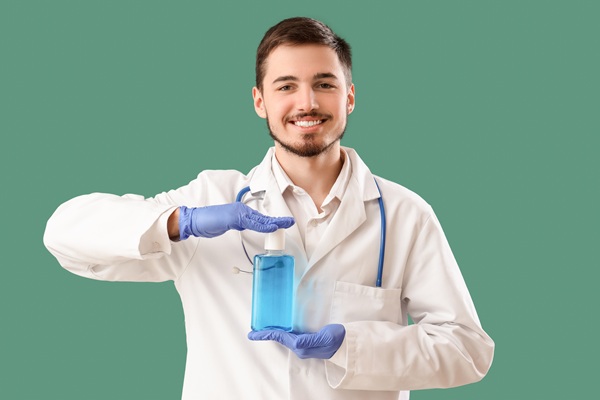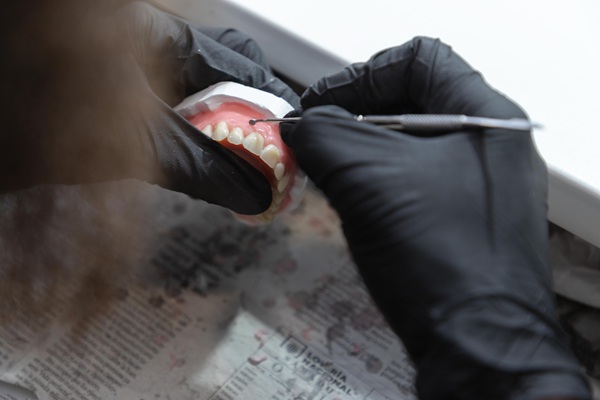Do I Have Sleep Apnea Port Allen, LA
For many patients, treating sleep apnea can improve their overall quality of life. The condition can be obtrusive and affect you in both your sleeping and waking hours. Sleep apnea may be treatable through dental care.
Solutions for sleep apnea are available at GBR Dental in Port Allen and the surrounding area. Maintaining your dental health can also benefit your sleep. We may be able to help. Call us today at (225) 298-9980 to schedule an appointment and learn more.
What is Sleep Apnea?
Sleep apnea is a sleeping and breathing disorder in which breathing stops and starts periodically throughout a person's sleep. This can have a negative impact on their oxygen levels and results in lower quality sleep. There are several types of sleep apnea, including obstructive sleep apnea (OSA), Central sleep apnea (CSA), and Mixed sleep apnea, and various causes for each.
OSA is the most common type of sleep apnea, caused by a physical blockage of the airways in the throat, obstructing normal airflow. CSA results from the brain's muscle control system and the way in which breathing signals are sent to the throat and respiratory muscles. Mixed sleep apnea, also called complex sleep apnea, refers to a person who has both OSA and CSA.
“Sleep apnea is a sleeping and breathing disorder in which breathing stops and starts periodically throughout a person’s sleep.”
Sleep Apnea or Sleep Disorder?
A sleeping disorder refers to habits occurring during sleep that affect breathing and overall health. Breathing pattern disorders (BPD), or dysfunctional breathing, are chronic or recurring conditions that cause a distortion in sleep. Sleep apnea is often referred to as both a sleeping disorder and a breathing disorder as these two factors are affected.
Sleep apnea is a serious, life-threatening condition that can greatly reduce oxygen levels, accelerate the heart rate, and increase blood pressure. Oxygen and adequate sleep are essential for proper brain functioning. Therefore, combining low oxygen levels with obstructed sleep can affect multiple parts of the body such as the muscles, mind, mood, and metabolism.
“Sleep apnea is often referred to as both a sleeping disorder and a breathing disorder as these two factors are affected.”
Causes and Risk Factors of Sleep Apnea
Sleep apnea can arise at any time in a person's life. Nonetheless, there are certain risk factors that may make a person more likely to develop the condition. Oral conditions that may cause sleep apnea are narrowed or constricted airways, chronic nasal congestion, Bruxism, and temporomandibular joint dysfunction (TMJ). Other risk factors include excess weight, hypothyroidism, polycystic ovary syndrome, hypertension, smoking, diabetes, gender, genetics, and asthma.
Airways are often blocked or constricted due to a small jaw, tonsils that lay over the throat, a large tongue, or fat deposits in the back of the throat. Bruxism and TMJ both affect the jaw because of constant grinding and clenching, which can affect normal breathing. GBR Dental can properly examine a patient and determine whether they have sleep apnea, if it is caused by an oral condition, and the treatment needed for their specific case.
“Oral conditions that may cause sleep apnea are narrowed or constricted airways, chronic nasal congestion, Bruxism, and temporomandibular joint dysfunction (TMJ).”
Check out what others are saying about our dental services on Yelp: Do I Have Sleep Apnea in Port Allen, LA
Recognizing Sleep Apnea
Some groups may be more at risk of developing sleep apnea than others. Age, for instance, increases one's chance of developing sleep apnea. The condition is also more common in younger men than in younger women. Unhealthy lifestyle habits, such as excessive alcohol consumption, smoking, and poor diet, may also contribute. Taking steps towards a healthier lifestyle may lessen an individual's risk of developing sleep apnea.
Being able to recognize the signs of sleep apnea is crucial. Patients should watch out for sore throat upon waking, excessive daytime sleeping, restless sleep, decreased libido, waking during the night, high blood pressure, and gastroesophageal reflux disease (GERD). Children may also exhibit different symptoms of sleep apnea than adults. These may include bedwetting, choking, drooling, excessive nighttime sweatiness, learning and behavior issues, and problems at school.
“Children may also exhibit different symptoms of sleep apnea than adults.”
Questions Answered on This Page
Q. What are the signs of sleep apnea?
Q. What is sleep apnea? What are the types of sleep apnea?
Q. Is sleep apnea a sleeping disorder?
Q. What are the causes of sleep apnea?
Q. What treatments are available for sleep apnea?
People Also Ask
Q. Who is the right patient for a dental restoration?
Q. What conditions do night guards treat?
Q. What to do between dental visits?
Q. What happens during a direct dental restoration?
Q. What additional treatments are available at a general dentist?
Treating and Managing Sleep Apnea
Sleep apnea may be a temporary condition resulting from a poor health habit, such as smoking, excessive eating, and alcohol or drug abuse. These can be treated by reducing or eliminating these habits and doing a few breathing exercises every day to expand the airways and increase airflow. However, sleep apnea is often caused by factors out of our control and must be treated as soon as possible to prevent other serious health conditions.
Treatments for sleep apnea include Continuous Positive Airway Pressure (CPAP) machines, oral appliances, surgery, upper airway stimulation (UAS), and medication. CPAP machines deliver continuous oxygen flow via a mask during sleep. Oral appliances are custom-made devices a dentist creates to keep the airways open. Various surgeries can be performed to solve the root problem, whether it be the sinuses, jaw, tongue, throat, or soft tissues. Upper airway stimulation involves a device connected to the chest that analyzes a person's breathing patterns and sends signals to keep the airways open. Medications may be prescribed when these options are not suitable for a patient for any reason. We will determine the type of treatment depending on the patient's age, type of sleep apnea, and medical conditions that may restrict certain treatments.
“Treatments for sleep apnea include Continuous Positive Airway Pressure (CPAP) machines, oral appliances, surgery, upper airway stimulation (UAS), and medication.”
Frequently Asked Questions
Q. How common is sleep apnea?
A. According to the Sleep Foundation, "Obstructive sleep apnea is estimated to affect between 2-9% of adults in the United States, but many cases are believed to go undiagnosed." Since a person may go a long period of time without realizing that they have sleep apnea, many are unaccounted for.
Q. What is the success rate of sleep apnea treatments?
A. Each case, treatment, and person is different. There could be two patients with the same type of sleep apnea but who have entirely different results. For example, the success rate of most sleep apnea surgeries is 60%, while a CPAP machine may completely cure a person of their condition.
Q. What are the possible complications of untreated sleep apnea?
A. Sleep apnea is a life-threatening condition as oxygen is a pertinent component of overall health, affecting nearly every organ. Going without treatment can result in hypertension, heart disease, fatigue, migraines, type 2 diabetes, metabolic syndrome, cardiovascular disease, memory problems, weight gain, and liver problems.
Q. What are the long-term effects of sleep apnea?
A. Going without treatment for a long period of time can have dire effects on the mind and body. Long-term effects of sleep apnea include, but are not limited to, high blood pressure, stroke, heart failure, heart attacks, and irregular heartbeat. It is important to seek immediate help and treatment when first experiencing symptoms.
Q. What foods should be avoided for patients with sleep apnea?
A. There are not many restrictions on foods and beverages for patients with sleep apnea unless their case is caused by an allergy or other specific factor. Dairy and bananas are known to increase mucus production, which can cause or progress sleep apnea. We will discuss any restrictions if a patient's case requires them.
Dental Terminology
Learn More Today
Treating sleep apnea can improve your overall dental health and quality of life. We at GBR Dental may be able to help. Call us today at (225) 298-9980 to schedule an appointment and learn more.
Helpful Related Links
- American Dental Association (ADA). Glossary of Dental Clinical Terms. 2025
- American Academy of Cosmetic Dentistry® (AACD). Home Page. 2025
- WebMD. WebMD’s Oral Care Guide. 2025
About our business and website security
- GBR Dental was established in 1983.
- We accept the following payment methods: American Express, Cash, Check, Discover, MasterCard, and Visa
- We serve patients from the following counties: West Baton Rouge Parish, East Baton Rouge Parish, Iberville Parish and Pointe Coupee Parish
- We serve patients from the following cities: Port Allen, Baton Rouge, Brusly, Addis, Plaquemine, Rosedale, Grosse Tete, Erwinville, Livonia, Maringouin, Baker, and New Roads
- National Provider Identifier Database (1598893976). View NPI Registry Information
- Healthgrades. View Background Information and Reviews
- Norton Safe Web. View Details
- Trend Micro Site Safety Center. View Details
Back to top of Do I Have Sleep Apnea
